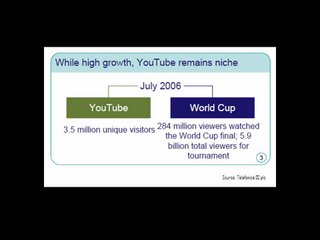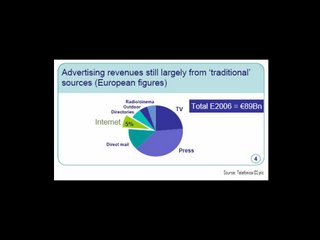"In fact, I also have an anonymous dude who attacks me ...he's devoted almost an entire blog to attacking me (not linking)."This is the blog that Umair is afraid of, and actually not because it attacks him, but because it demonstrates how wildly idiotic his theories actually are.
I find this hilarious.
Every blog post Umair writes attacks someone for "not getting it", so how he gets the balls to criticize someone else for taking on his ideas is unclear.
Umair himself actually advised me to get my own blog, as he decided that - despite all his meowling about Web 2.0 "edginess" and "user freedom" - he wanted full control of the opinions expressed on his blog, in a very dictatorial, 1.0 way. Funny how his stated theories about the edge break down when applied to his own website, isn't it?
And now I have a blog that covers what I want to cover, i.e. Umair's idiotic theories, he doesn't like what I write about him and his silly theories. Well, tough luck. This is the essence of Web 2.0 edginess; I am creating and publishing quality content about the little niche in the long blog tail that I care about. How totally hilarious that Umair, the hyper-proponent of the edeg-generated content model doesn't like being the subject of that model in action!
Maybe if Umair wrote something that borders on real analysis and not just nonsensical, vague, ill-thought-out BS and I'd back it up. Umair's theories are complete, utter rubbish, as the simplest of analysis, and billions of dollars of real investment by serious businesses reveal. Frankly I think Umair has been drinking too much of the Web 2.0 Koolaid as served by people like Stowe Boyd - people who set themselves up as critical geniuses, but who in reality have very few truly successful ventures behind them; Umair has zero track record of success, and intellectually his work doesn't stand up to the slightest review.
So far he has dodged the issue of how incredible his theories are by stating that they will only work if:
a) property rights laws change to allow appropriation of anyone else's property - except his own ideas, which he should be paid for by analysts who "rip hiim off";
b) fundamental economic laws, such as Ricardian rents, that are about as stable as gravity, change 180° to suit him;
c) everything grows at an exponential rate, which as Warren Buffet says, "even an idiot knows can't continue forever".
If Umair wants to be credible, show us the money; as any student of game theory knows, talk - including Powerpoint showing hocky stick charts, adding hyper as a prefix to everything and simply stating unproven, wildly inaccurate theories as fact - is cheap.
Labels: bubblegeneration, idiot, rents, Umair Haque, umairhaque, Warren Buffet, web 2.0

